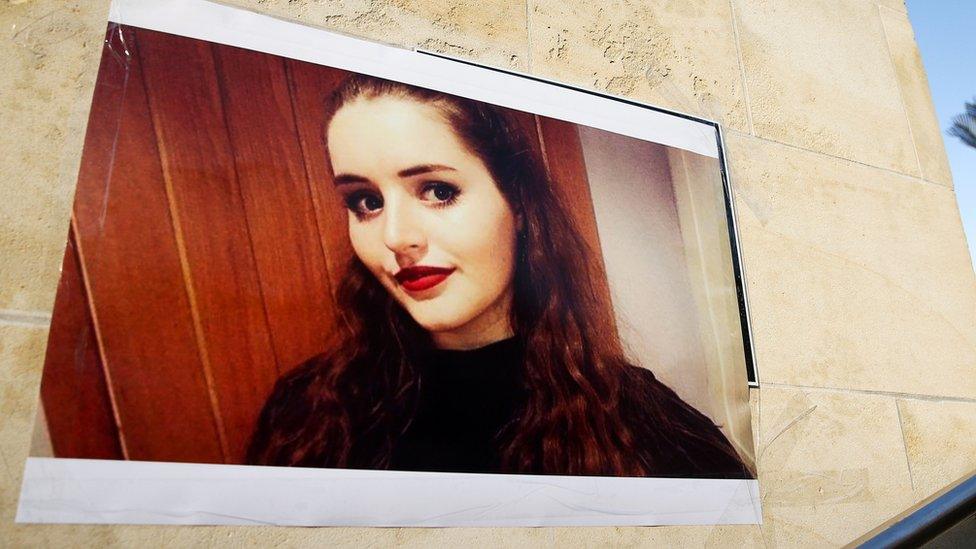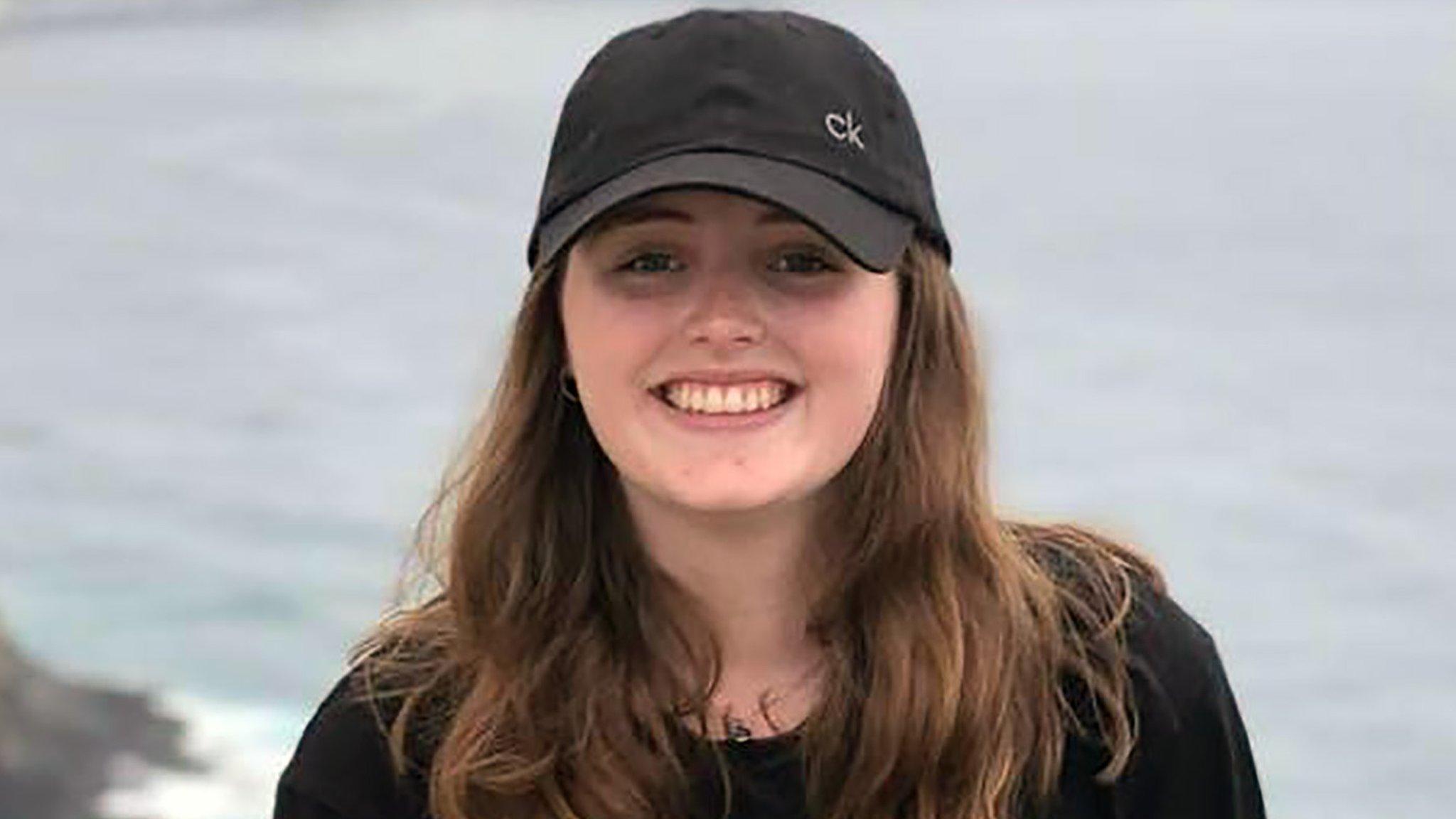Grace Millane: New Zealand anger over Google naming murder suspect
- Published

Grace Millane was travelling the world and came to New Zealand in November
New Zealand's justice minister has said Google could face prosecution for sending a mass email which included the name of the man accused of murdering British backpacker Grace Millane.
The suspect was granted a temporary name suppression while he awaits trial, making it illegal to publish his name.
The email, which named the suspect prominently, went to people signed up to receive the country's top trends.
Google said it did not know about the suppression order.
Justice Minister Andrew Little told the New Zealand Herald, external that if the email breach was traced to any of Google's New Zealand infrastructure then the firm could be prosecuted in the country. Google has an office in New Zealand with at least 20 staff and was set to add more employees this year.
"Google has staff in New Zealand, I know because I've got Christmas cards from them," Mr Little said."They should not be allowed to say 'it's all the machine's problem it's nothing to do with us.' The truth is, Google is responsible for publishing in New Zealand information that's been suppressed by a court.
"They've acted in contempt of court accordingly. We have to find a way of calling those folks to account," TVNZ quoted him as saying.
Google did not respond to a request for comment from the BBC. But a spokesperson told The Herald that initial investigations by the company showed it did not know about the suppression order., external
"When we receive valid court orders, including suppression orders, we review and respond appropriately. In this case, we didn't receive an order to take action," a statement quoted by New Zealand media says.
Several British news outlets have also named the murder suspect.
100,000 searches
In New Zealand's court system, the accused and victims can ask to have their name suppressed, which means it becomes illegal to publish it in newspapers, online or anywhere else.
The purpose is to protect people not yet proven guilty but also to have a fairer trial by ensuring the jury is not prejudiced by media coverage.
In the Grace Millane case the accused was not given a suppression order by the Auckland district court, but his defence said they would appeal to a higher court - which automatically triggers a 20-working day suppression.
New Zealand media have upheld the suppression order, but some UK media have named the accused.
Mr Little rebuked them for this, after which they geo-blocked their stories so that they cannot be seen in New Zealand.
But then Google sent out an email to the subscribers of its top trends list with the name of the accused as well as articles linking to stories about the murder case. The email was first seen by New Zealand website The Spinoff.
It said more than 100,000 searches were made of the man's name in the country.
The incident has sparked a debate in the country about suppression laws in the internet age.
When asked about this Prime Minister Jacinda Ardern said: "There is no doubt the environment has changed and that's having an effect on a number of our laws in this space - reporting around suicide, you could even argue clean slate legislation [which helps people conceal their criminal record]. At this time it's not part of our work."
- Published12 December 2018

- Published22 November 2019
